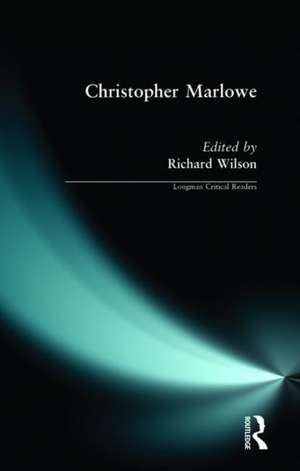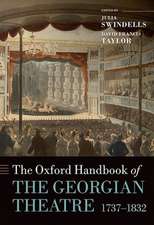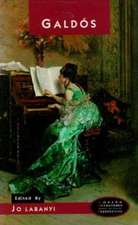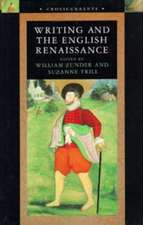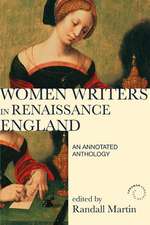Christopher Marlowe: Longman Critical Readers
Autor Richard Wilsonen Limba Engleză Paperback – 25 feb 1999
Gay Studies, Cultural Materialism, New Historicism and Reader Response Criticism are all represented in this selection, which the introduction places in the light not only of theorists like Althusser, Bataille and Bakhtin, but also of artists and writers such as Jean Genet and Robert Mapplethorpe. Many of the essays take off from Marlowe's extreme dramatisations of arson, cruelty and aggression, suggesting why it is that the thinker who has been most convincingly applied to his theatre is the philosopher of punishment and pain, Michel Foucault. Others explore the exclusiveness of this all-male universe, and reveal why it remains so offensive and impenetrable to feminism. For what they all make disturbingly clear is Marlowe's violent, untamed difference from the clichés and correctness of normative society.
| Toate formatele și edițiile | Preț | Express |
|---|---|---|
| Paperback (1) | 466.45 lei 6-8 săpt. | |
| Taylor & Francis – 25 feb 1999 | 466.45 lei 6-8 săpt. | |
| Hardback (1) | 1000.27 lei 6-8 săpt. | |
| Taylor & Francis – 19 ian 2017 | 1000.27 lei 6-8 săpt. |
Din seria Longman Critical Readers
-
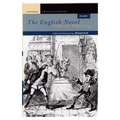 Preț: 400.86 lei
Preț: 400.86 lei - 8%
 Preț: 439.03 lei
Preț: 439.03 lei -
 Preț: 380.01 lei
Preț: 380.01 lei -
 Preț: 469.34 lei
Preț: 469.34 lei - 16%
 Preț: 337.75 lei
Preț: 337.75 lei - 18%
 Preț: 1163.63 lei
Preț: 1163.63 lei -
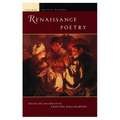 Preț: 449.41 lei
Preț: 449.41 lei - 18%
 Preț: 1000.27 lei
Preț: 1000.27 lei - 15%
 Preț: 496.99 lei
Preț: 496.99 lei - 15%
 Preț: 669.94 lei
Preț: 669.94 lei - 18%
 Preț: 1000.27 lei
Preț: 1000.27 lei -
 Preț: 463.62 lei
Preț: 463.62 lei -
 Preț: 489.87 lei
Preț: 489.87 lei - 18%
 Preț: 1000.27 lei
Preț: 1000.27 lei -
 Preț: 466.67 lei
Preț: 466.67 lei - 12%
 Preț: 299.52 lei
Preț: 299.52 lei -
 Preț: 416.22 lei
Preț: 416.22 lei - 18%
 Preț: 1000.27 lei
Preț: 1000.27 lei - 18%
 Preț: 1000.27 lei
Preț: 1000.27 lei - 18%
 Preț: 1000.27 lei
Preț: 1000.27 lei - 18%
 Preț: 1000.27 lei
Preț: 1000.27 lei - 18%
 Preț: 1000.27 lei
Preț: 1000.27 lei -
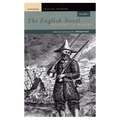 Preț: 388.44 lei
Preț: 388.44 lei - 18%
 Preț: 1000.27 lei
Preț: 1000.27 lei - 18%
 Preț: 1000.27 lei
Preț: 1000.27 lei -
 Preț: 314.41 lei
Preț: 314.41 lei - 18%
 Preț: 1000.27 lei
Preț: 1000.27 lei - 18%
 Preț: 1000.27 lei
Preț: 1000.27 lei - 18%
 Preț: 1164.44 lei
Preț: 1164.44 lei - 18%
 Preț: 1000.27 lei
Preț: 1000.27 lei - 18%
 Preț: 1111.09 lei
Preț: 1111.09 lei - 18%
 Preț: 1000.27 lei
Preț: 1000.27 lei - 18%
 Preț: 1000.27 lei
Preț: 1000.27 lei - 18%
 Preț: 1000.27 lei
Preț: 1000.27 lei -
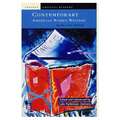 Preț: 322.97 lei
Preț: 322.97 lei - 54%
 Preț: 513.61 lei
Preț: 513.61 lei - 12%
 Preț: 305.97 lei
Preț: 305.97 lei - 15%
 Preț: 480.93 lei
Preț: 480.93 lei -
 Preț: 441.95 lei
Preț: 441.95 lei
Preț: 466.45 lei
Nou
Puncte Express: 700
Preț estimativ în valută:
89.25€ • 93.44$ • 73.85£
89.25€ • 93.44$ • 73.85£
Carte tipărită la comandă
Livrare economică 05-19 aprilie
Preluare comenzi: 021 569.72.76
Specificații
ISBN-13: 9780582237070
ISBN-10: 0582237076
Pagini: 286
Dimensiuni: 138 x 216 x 16 mm
Greutate: 0.39 kg
Ediția:1
Editura: Taylor & Francis
Colecția Routledge
Seria Longman Critical Readers
Locul publicării:Oxford, United Kingdom
ISBN-10: 0582237076
Pagini: 286
Dimensiuni: 138 x 216 x 16 mm
Greutate: 0.39 kg
Ediția:1
Editura: Taylor & Francis
Colecția Routledge
Seria Longman Critical Readers
Locul publicării:Oxford, United Kingdom
Cuprins
1. INTRODUCTION. The Ruffian on the Stair. The Burning Library. Confessions of a Mask. The Bonfire of Vanities. Saint Marlowe. 2. MARJORIE GARBER, `Here's Nothing Writ': Scribe, Script and Circumscription in Marlowe's Plays 3. JONATHAN GOLDBERG, Sodomy and Society: The Case of Christopher Marlowe 4. SIMON SHEPHERD, Representing `Women' and Males: Gender Relations in Marlowe 5. JONATHAN GOLDBERG, `Play the Sodomites, or Worse': `Dido Queen of Carthage' 6. JONATHAN CREWE, The Theatre of the Idols: Marlowe, Rankins, and Theatrical Images 7. ALAN SINFIELD, Legitimating Tamburlaine 8. RICHARD WILSON, Visible Bullets: `Tamburlaine the Great' and Ivan the Terrible 9. STEPHEN GREENBLATT, Marlowe, Marx, and Anti-Semitism 10. EMILY BARTELS, Malta: `The Jew of Malta', and the Fictions of Difference
11. THOMAS CARTELLI, King Edward's Body 12. JOHN ARCHER, Marlowe and the Observation of Men
13. JULIA BRIGGS, The Rites of Violence: Marlowe's `Massacre at Paris' 14. JONATHAN DOLLIMORE, `Doctor Faustus': Subversion through Transgression 15. HILARY GATTI, Bruno and Marlowe: `Doctor Faustus'
11. THOMAS CARTELLI, King Edward's Body 12. JOHN ARCHER, Marlowe and the Observation of Men
13. JULIA BRIGGS, The Rites of Violence: Marlowe's `Massacre at Paris' 14. JONATHAN DOLLIMORE, `Doctor Faustus': Subversion through Transgression 15. HILARY GATTI, Bruno and Marlowe: `Doctor Faustus'
Descriere
Christopher Marlowe has provoked some of the most radical criticism of recent years. The reason suggested by this collection of essays is that Marlowe shares the post-modern preoccupation with the language of power - and the power of language itself. Gay Studies, Cultural Materialism, New Historicism and Reader Response Criticism are all represented in this selection. Many of the essays take off from Marlowe's extreme dramatisations of arson, cruelty and aggression, suggesting why it is that the thinker who has been most convincingly applied to his theatre is the philosopher of punishment and pain, Michel Foucault. Others explore the exclusiveness of this all-male universe, and reveal why it remains so offensive and impenetrable to feminism. For what they all make disturbingly clear is Marlowe's violent, untamed difference from the correctness of normative society.
